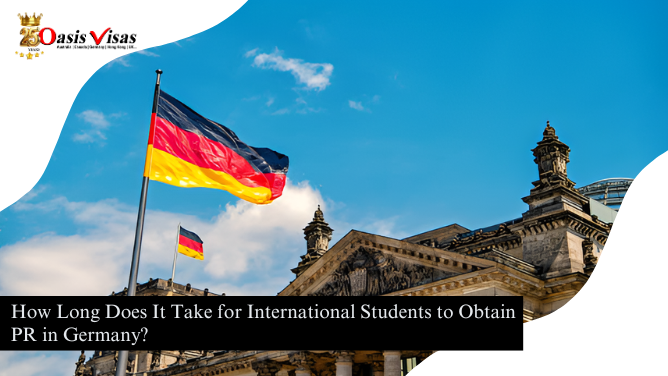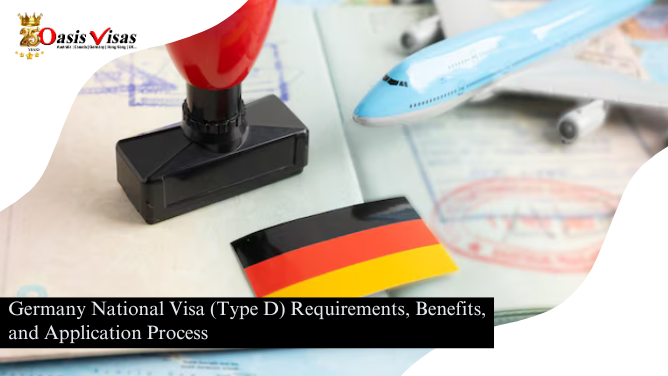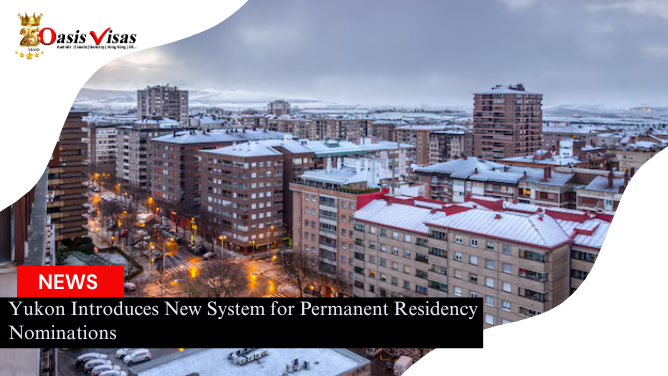
Obtaining a PR in Germany is great because of its world-class education system, offers excellent opportunities for international students looking to further their academic and professional careers. The country has become a popular destination for students worldwide due to its high-quality education, a wide range of programs in English, and a welcoming atmosphere for foreign nationals. But what happens after completing studies? Many international students wonder how long it takes to transition from being a student in Germany to becoming a permanent resident (PR).
This blog will delve into the process, timelines, and key factors that international students need to consider when seeking PR in Germany. For international students, the path to obtaining PR in Germany begins even before their graduation. It’s important to understand the general process and eligibility criteria for permanent residency. Germany offers a couple of routes for international students, especially those who wish to stay back and work after their studies.
Once you finish your degree and find employment that matches your qualifications, you can apply for a work visa or a residence permit. After holding a work permit for a specified number of years, international students can then apply for PR in Germany. But the timeline and eligibility can vary based on several factors, including the type of job you secure, your level of education, and whether you are in a region that has a high demand for your profession.
The Path to PR in Germany for International Students
International students can begin their journey to permanent residency by first securing a temporary residence permit for the purpose of seeking work. After completing their studies, they are allowed to stay in Germany for up to 18 months to find a job that corresponds to their qualifications. During this time, international students can explore various industries and secure employment. If they find a job, they will transition from a student visa to a work visa.
This step is crucial, as the work visa allows international students to gain the necessary work experience, which is a requirement for obtaining PR in Germany. Typically, the process for obtaining PR can take around 3 to 5 years, depending on the student’s specific situation. However, there are several factors that influence the timeline. The type of job you acquire plays a significant role in this.
If you find a job that is highly specialized or in demand in Germany, you may be able to apply for PR earlier. For example, if you are employed in fields such as engineering, IT, or healthcare, where there is a high demand for professionals, your path to PR may be quicker.
Types of Residence Permits and Their Impact on PR Applications
International students who have successfully transitioned to a work visa are then required to hold the work visa for a minimum of 2 to 3 years before applying for PR. During this time, it’s important to show that you have been employed and have contributed to Germany’s economy. After the required period, you can apply for the settlement permit, also known as the permanent residence permit. This permit allows international students to stay indefinitely in Germany.
There is also the EU Blue Card, which is another option for international students who want to work in Germany. If you qualify for an EU Blue Card by having a high level of education and a job that pays above the average salary, the timeline for obtaining PR may be shorter. Typically, holders of an EU Blue Card can apply for PR after 33 months of living and working in Germany. However, if they demonstrate language proficiency in German, the timeline can be reduced to 21 months.
Important Requirements for PR Applications
To qualify for PR in Germany, international students need to meet certain requirements. Aside from holding a work permit for the required number of years, students must also prove their proficiency in the German language. Typically, a B1 or B2 level in the Common European Framework of Reference (CEFR) for Languages is sufficient. Additionally, applicants must demonstrate that they can financially support themselves without relying on state welfare. Having health insurance and a stable income are also essential when applying for PR.
Another crucial factor is the type of accommodation. International students must provide proof of having stable accommodation. Whether you own or rent your property, this proof is necessary to show that you can sustain yourself independently. This is an essential part of the process as it reflects your ability to live and work in Germany long-term.
Can International Students Apply for PR Immediately After Graduation?
In most cases, international students cannot apply for PR immediately after completing their studies. The key is to gain work experience in a field related to your degree. While you can stay in Germany for up to 18 months to look for a job after graduation, the PR application can only proceed after you have worked in the country for a few years.
For those working in high-demand sectors, the transition can be faster, but for others, the wait might be longer. Patience, along with meeting the necessary requirements, is essential to obtaining PR.
How to Speed Up the Process to Obtain PR in Germany
There are certain conditions under which international students can speed up the PR process. If you have studied in Germany at a university or higher education institution, this is often seen as a positive factor. The more highly qualified you are, the more likely you are to secure a job quickly, which can, in turn, speed up your PR application.
Furthermore, if you have completed a degree in a field where Germany faces a shortage of skilled workers, your chances of gaining permanent residency faster are significantly higher. For international students, Germany offers a promising pathway to permanent residency. While the process can take between 3 to 5 years, the key factors influencing this timeline include the type of job secured, language proficiency, and whether you meet all other requirements for PR in Germany.
The transition from being an international student to obtaining PR in Germany may require patience, but with the right steps, it is definitely achievable. It’s important for international students to stay informed and ensure that they are meeting all the necessary requirements, including work experience, language skills, and financial stability. By doing so, they can look forward to a successful future in Germany as permanent residents.











